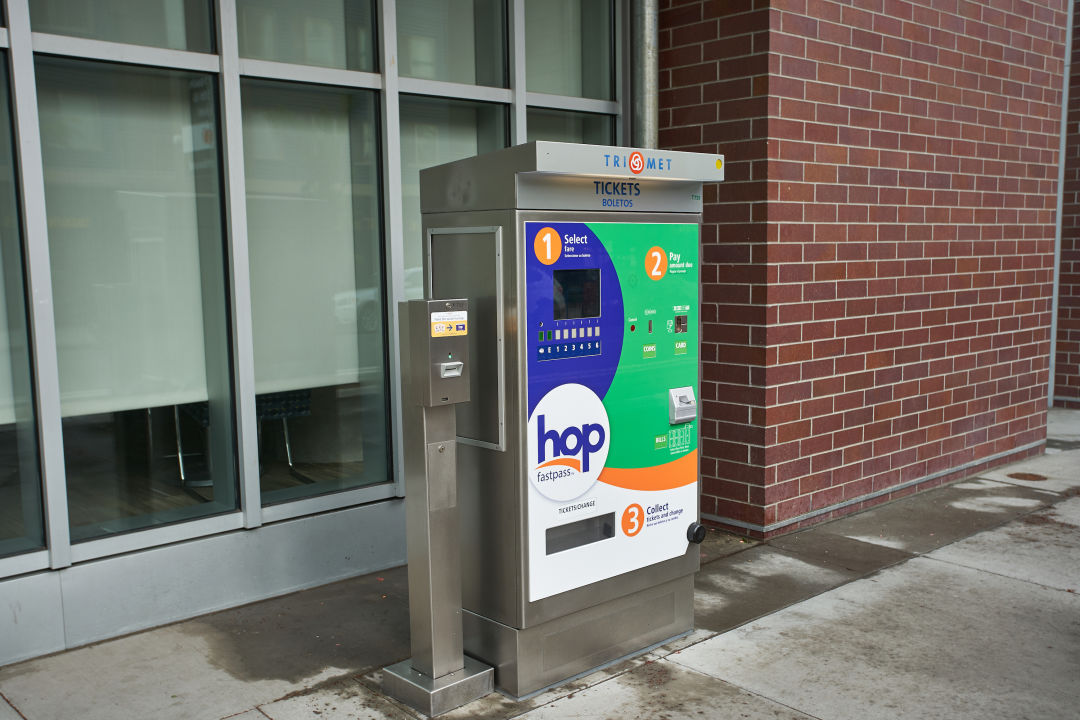People Are Really Mad at TriMet over Its New ‘Fare Inspectors’

A TriMet ticket machine at a MAX station in downtown Portland
TriMet, the metro area’s bus-light rail-streetcar-tram overlord agency, is getting trolled hard on Twitter after announcing a crackdown on riders who fail to pay their fares.
“Complaints about people hopping on board without paying are among the most common we get,” the agency wrote Tuesday in the first of a series of four posts.
We've all seen it: somebody not paying their fare.
— TriMet (@trimet) October 22, 2019
It's frustrating, especially when you've paid yours — complaints about people hopping on board without paying are among the most common we get. (1/4)
“Starting this week, we’ll have nine new dedicated fare inspectors out on our system,” the agency’s posts continued. “They’ll be checking fares, helping riders, and making sure our system stays a safe place that is welcoming to all.”
Right away, the news drew an avalanche of sarcasm-tinged public condemnation, and calls for a return to “Fareless Square”—the erstwhile free light rail and streetcar rides through downtown to the Lloyd District in Northeast Portland, gone since 2012—or even an entirely fare-free system.
The Twittersphere also strongly suggested that if history is any guide, fare inspections would focus on people of color and the homeless, and other historically underserved populations.
Portland mayoral candidate Sarah Iannarone waded into the mix, too, reminding TriMet that a Multnomah County judge in 2018 ruled that it was illegal to arbitrarily stop passengers on the MAX and request proof of fare.
— Sarah Iannarone (she/her) (@sarahforpdx) October 22, 2019
In its current budget, TriMet has $806,432 set aside to pay for 12 fare inspectors, plus another $78,013 for a fare enforcement administrator. That’s enough to cover the costs of 353,778 free adult rides, at $2.50 apiece.
Joe Hand, the co-executive director of open source nonprofit Code for Science & Society, pointed out via Twitter that in a 2018 ridership survey, only 2 percent of 807 respondents identified a “lack of fare enforcement” as a top safety concern when riding TriMet. The most common answer was “no fears, same as anywhere.”
Trimet did a survey in November 2018 (https://t.co/Vg9bqExmAD). Here are some results. The key point:
— Joe Hand (@joeahand) October 22, 2019
2% of respondents said "lack of fare enforcement" was a safety issue. pic.twitter.com/MaaM8F572x
On first offense, fare evasion brings a $75 ticket, and escalates from there to $175 for a fourth offense, though offenders can petition to do community service instead and waivers are available for those who meet the low-income guidelines. In contrast, overstaying your parking meter is a flat $44 fee each time.
TriMet has not tweeted since the imbroglio, but did wind up its series of posts with a cheery, “Finally, we do know that most of our riders do pay and play by the rules — we thank you for that. Our new fare inspectors are here to make the ride better for you.”




